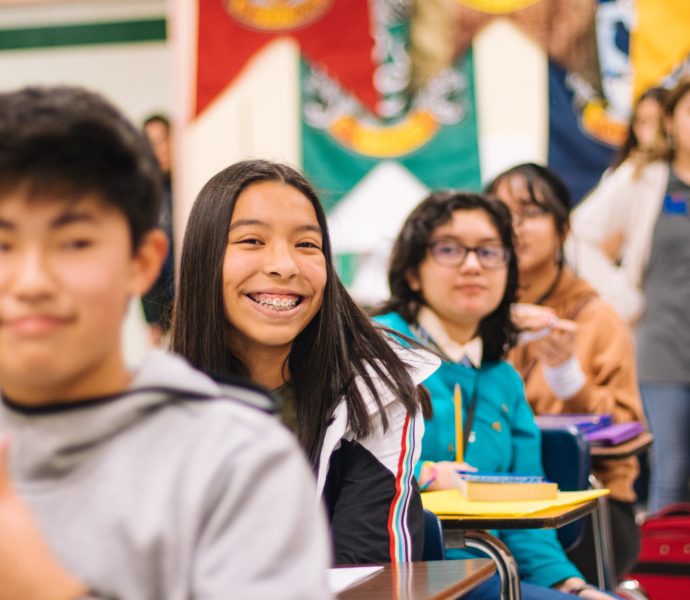Joy As Resistance Creates Space for LGBTQ Youth Mental Health
ByAnna Stutterer
After Amanda Gonzales’ two children came out, the questions that came to mind went beyond acceptance: As a cisgendered, heterosexual woman, what do I do? How do I support my own children?
An answer came from an unexpectedly personal place. Two years ago, Gonzales, now Principal of KIPP Northeast Denver Leadership Academy (KNDLA), sat in her former office as Vice Principal at KIPP Northeast Middle School. She met with her supervisee and colleague, Bre Donnelly, a social worker. Having worked with families at KIPP on social/emotional issues, Donnelly noticed a need for additional programming. Her passions and her gut told her to focus on LGBTQ youth. Following their brainstorming session, Gonzales pointed Donnelly toward Moonshot EdVentures, a local group that invests in diverse community leaders and their ideas for new schools and programs.
“What I hear a lot in schools is a ‘most bang for your buck kind of situation,’” says Donnelly, adding she’d assumed her idea for a queer-focused program seemed too niche. “What I learned in Moonshot is that identity-based work has a very specific space and a really positive one.”
Out of Donnelly’s time with Moonshot, which included a series of community input modules and four pilots, Joy As Resistance emerged. The organization, which launched in August 2020, is a mobile mental health clinic that converges with schools and nonprofits.
Building partnerships to serve students
So far, Joy As Resistance has partnered with three KIPP network schools and is in consultation with several others. Donnelly has hired a second clinical counselor, served dozens of individual clients, and consulted with nonprofit organizations regarding inclusive practices.
“Our staff has been incredibly receptive and thankful to Bre,” says Gonzales. KNDLA benefits from Donnelly’s staff training, consultations as critical situations arise, and guidance for their Gender and Sexualities Alliance club. “If we’re not actually honing in and seeing students for who they are, it can really just cause this misplacement … then also, it teaches them that their identity isn’t the top priority.”
Gonzales, who’s been working with young people for 24 years, has seen broad programming fail at addressing critical mental health needs—narrowed and specialized programming is where the greatest growth happens.
“When you already have a racial minority identity and then you put a gender or sexuality minority identity on top of that, the intersectionality there can create a difficult environment to have positive mental health,” says Donnelly. “I also think there’s so much strength and resilience in the community as well.”
Tapping into and feeding that resilience is foundational to Joy As Resistance’s enterprise. Board meetings and student sessions often include prompts: What is bringing you joy today? How are you taking care of yourself? How are you making space for happiness and positivity while holding space to process difficult things?
Read the full article here.
